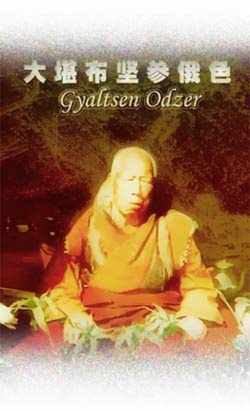Difference between revisions of "Four purities"
Jump to navigation
Jump to search
(Created page with "thumb|250px| <poem> Four purities In the generation stage of Deity Yoga, the practitioner visualizes the "Four Purities" (Tibetan:...") |
|||
| Line 3: | Line 3: | ||
[[Four purities]] | [[Four purities]] | ||
| − | In the [[generation stage | + | In the [[generation stage of Deity Yoga]], the [[practitioner]] [[visualizes]] the "[[Four Purities]]" ([[Tibetan]]: [[yongs su dag pa bzhi]]; [[yongs dag bzhi]]) which define the [[principal Tantric]] [[Wikipedia:scientific method|methodology]] of [[Deity Yoga]]]] that distinguishes it from the rest of [[Buddhism]]: |
| Line 21: | Line 21: | ||
[[Category:Noble Eightfold Path]] | [[Category:Noble Eightfold Path]] | ||
[[Category:Four Noble Truths]] | [[Category:Four Noble Truths]] | ||
| + | [[Category:Tantras]] | ||
Revision as of 12:37, 27 March 2015
Four purities
In the generation stage of Deity Yoga, the practitioner visualizes the "Four Purities" (Tibetan: yongs su dag pa bzhi; yongs dag bzhi) which define the principal Tantric methodology of Deity Yoga]] that distinguishes it from the rest of Buddhism:
Seeing one's body as the body of the deity
Seeing one's environment as the pure land or mandala of the deity
Perceiving one's enjoyments as bliss of the deity, free from attachment
Performing one's actions only for the benefit of others (bodhichitta motivation, altruism)
see also: Buddhist Paths to liberation
